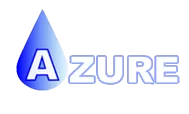
Modern diesel engines have become increasingly advanced and efficient, providing superior performance and fuel economy. However, with these advancements comes the need for additional measures to reduce harmful emissions. This is where Diesel Exhaust Fluid (DEF) plays a vital role. This article will explore why DEF is essential for modern diesel engines and how it contributes to cleaner air and improved environmental sustainability.
Contents
Why Can’t Modern Diesel Trucks Run Without DEF Fluid?
The Role of DEF in Emission Control
DEF is a non-toxic, clear solution comprising approximately 32.5% urea and 67.5% deionized water. It is injected into the exhaust stream of diesel engines equipped with Selective Catalytic Reduction (SCR) technology. DEF serves as a reducing agent that helps convert harmful nitrogen oxides (NOx) emissions into harmless nitrogen (N2) and water vapor (H2O). Without DEF, the SCR system cannot effectively reduce NOx emissions, resulting in non-compliance with stringent emission standards. Read more.
Compliance with Environmental Regulations
Recently, government regulations and environmental agencies have introduced stricter emission standards for diesel engines. DEF enables diesel trucks to meet these regulations by significantly reducing NOx emissions. Without DEF, modern diesel trucks would fail emission tests and could face legal penalties or restrictions on operation.
Improved Fuel Efficiency and Engine Performance
When used with SCR technology, DEF allows diesel engines to operate optimally. The engine can be optimized for better fuel economy and performance by reducing NOx emissions. The combustion process becomes more efficient, reducing engine wear and extending life.
How Does a Diesel Engine Work with and Without AdBlue?
The SCR Process
Selective Catalytic Reduction (SCR) is an advanced emissions control technology in modern diesel engines. It involves injecting DEF into the exhaust stream, which enters the SCR catalyst. The catalyst facilitates a chemical reaction that converts NOx emissions into harmless nitrogen and water vapor.
Working of a Diesel Engine with AdBlue (DEF)
When a diesel engine is equipped with SCR technology, and DEF is present, the engine operates by introducing DEF into the exhaust system. Upon contact with the hot exhaust gases, the DEF undergoes a chemical reaction that converts NOx emissions into harmless byproducts. This ensures compliance with emission standards and improves overall air quality.
Working of Diesel Engines without AdBlue (DEF)
If a diesel engine lacks SCR technology or DEF is not supplied, the NOx emissions remain largely unchanged. This leads to higher levels of pollutants being released into the atmosphere, contributing to air pollution and environmental degradation.
Can You Use Urine Instead of Diesel Exhaust Fluid?
Urine as a Substitute for DEF: Fact or Fiction?
A common myth suggests that urine can be used as a substitute for DEF due to its urea content. However, this is false and potentially damaging to the engine and emission control systems. Urine is not a suitable replacement for DEF as it contains impurities and variable urea concentrations that can cause system malfunctions and ultimately lead to engine damage.
Implications of Using Urine as DEF Substitute
Urine is not manufactured under controlled conditions like DEF, and its composition can vary widely. This inconsistency can disrupt the chemical reactions in the SCR system, resulting in increased emissions and potential engine failure. Using urine as a substitute for DEF is ill-advised and poses significant risks to the vehicle’s performance, fuel efficiency, and compliance with emission regulations.
FAQs about Diesel Exhaust Fluid (DEF)
How often should DEF be refilled?
The DEF consumption rate depends on the vehicle’s engine size and usage. A diesel truck consumes approximately 2-3% of DEF compared to the diesel fuel consumed. It is recommended to refill DEF when the gauge indicates a low level to avoid running out completely.
Can DEF freeze in cold temperatures?
DEF can freeze at temperatures below 12°F (-11°C). However, it does not impact its performance. DEF will thaw naturally when exposed to higher temperatures without compromising quality or effectiveness.
Are there any risks associated with mishandling DEF?
DEF is a non-toxic and safe substance. However, it can corrode certain metals, such as aluminum and copper. To maintain its integrity, it is crucial to handle DEF carefully, avoid contamination, and ensure proper storage in dedicated DEF tanks.
Can DEF expire or degrade over time?
DEF has a shelf life of approximately one year under ideal storage conditions. Exposure to high temperatures and direct sunlight can accelerate its degradation. It is advisable to use DEF within the recommended timeframe and purchase from reputable suppliers to ensure quality.
Is DEF readily available at fuel stations?
DEF is widely available at most truck stops, fuel stations, and automotive retail stores. It can be purchased in various container sizes to meet different vehicle needs, including bulk dispensers and smaller bottles.
Can DEF be mixed with diesel fuel?
No, DEF should never be mixed with diesel fuel. It must be stored and dispensed separately. Mixing DEF with diesel fuel can lead to system damage and compromise the performance of the emission control systems.
Conclusion
Diesel Exhaust Fluid (DEF) is crucial in reducing harmful emissions and ensuring compliance with stringent environmental regulations. Modern diesel trucks rely on DEF to meet emission standards, improve fuel efficiency, and protect the environment. While urine is not a viable substitute for DEF, using DEF manufactured under controlled conditions is essential to maintain engine performance and longevity. By understanding the significance of DEF, we can contribute to cleaner air and a more sustainable future.
Discover the power of Azure DEF solution for modern diesel engines. Boost your environmental sustainability and comply with emission regulations by incorporating Azure DEF into your fleet. Explore the benefits of Azure DEF today to learn more about our advanced diesel exhaust fluid technology. Get a quote.










